How Can You Create a Dementia-Friendly Home for Your Loved One?
Find practical tips to make a home safer for a loved one with dementia, including better lighting, safe flooring, contrasting colours, and assistive technology.
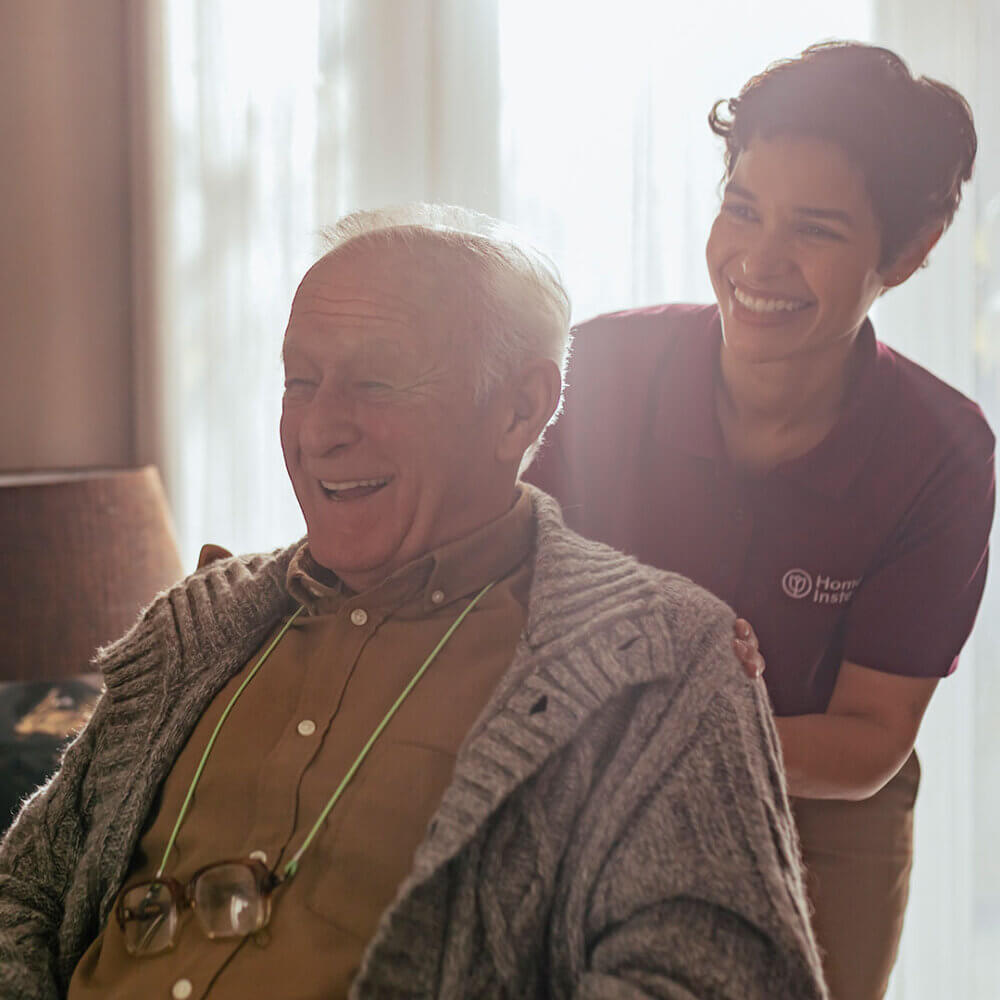
When someone you love is diagnosed with dementia, it can feel overwhelming to know where to start in making their home a safer, more comfortable place. At Home Instead Romford, Hornchurch, Rainham & Dagenham, we understand the challenges that come with dementia care and are here to offer some simple, practical tips for creating a dementia-friendly environment. These changes can help ease confusion, reduce stress, and support daily living.

Optimise the Lighting in Your Home
Did you know that poor lighting can make someone with dementia feel disoriented or even unsafe? It’s essential to ensure that all areas of the home are well-lit, especially spaces like stairs and bathrooms. Natural light is incredibly beneficial, so keep curtains open during the day and trim back hedges that block sunlight from coming through windows. When using artificial lighting, make sure to reduce glare and shadows, which can cause confusion.

Flooring Choices Can Impact Safety
Something as simple as changing the flooring can have a significant impact on creating a dementia-friendly home. Rugs and mats might seem harmless, but they can become tripping hazards. Removing them or securing them to the floor, can prevent unnecessary accidents. Additionally, avoid shiny or reflective floors, which may appear slippery to someone with dementia. Opt for flooring that contrasts with the walls and has a matte finish to avoid confusion.
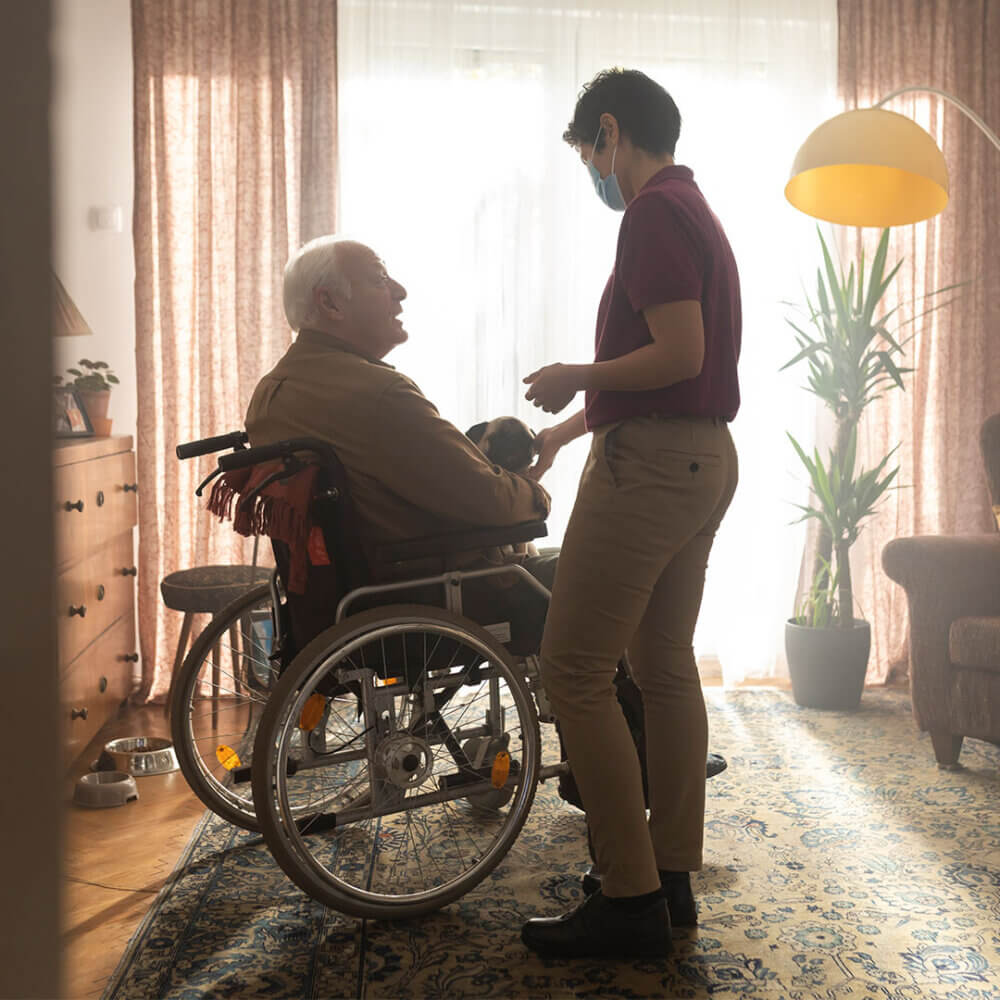
Choosing Colours That Make a Difference
Colour choices throughout the home can help someone with dementia navigate their space more easily. Use bold, contrasting colours for walls, floors, and furniture to help define different areas and objects. Items such as toilet seats, doors, and bannisters can be painted in a colour that stands out from the surroundings, making them easier to spot and use. However, be cautious with patterns, as these can sometimes be disorienting.
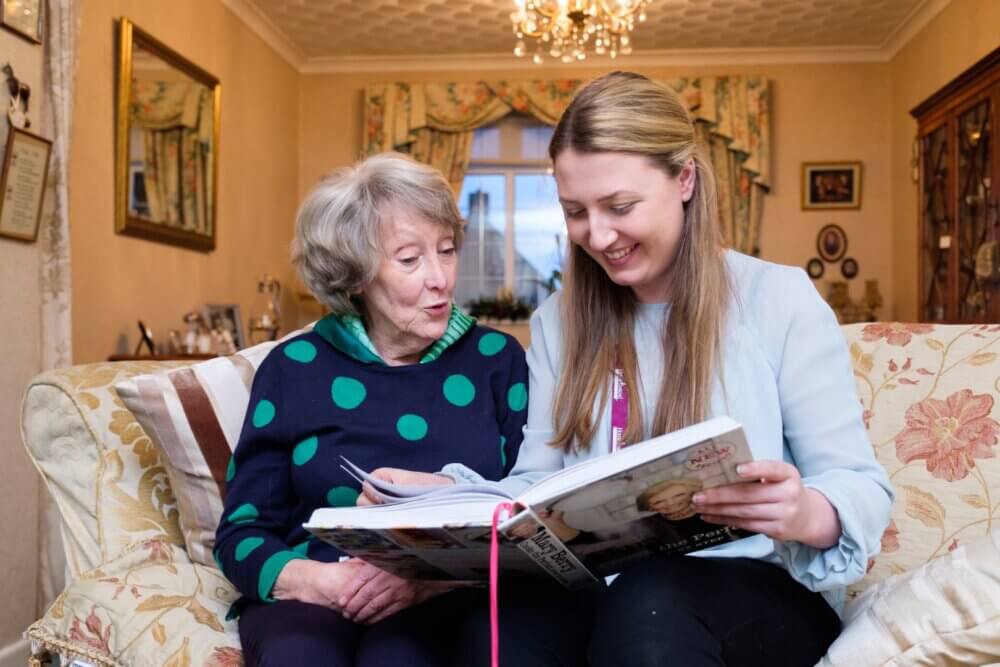
Use Clear Signs and Labels
For someone with dementia, labels and signage can be a lifesaver. Clearly labelling drawers, cupboards, and even light switches can make it easier for them to find what they need, promoting independence. Signs should be bold, simple, and placed at a level where they’re easy to see. Where possible, use visual cues alongside the text, such as pictures or symbols, to help with recognition.
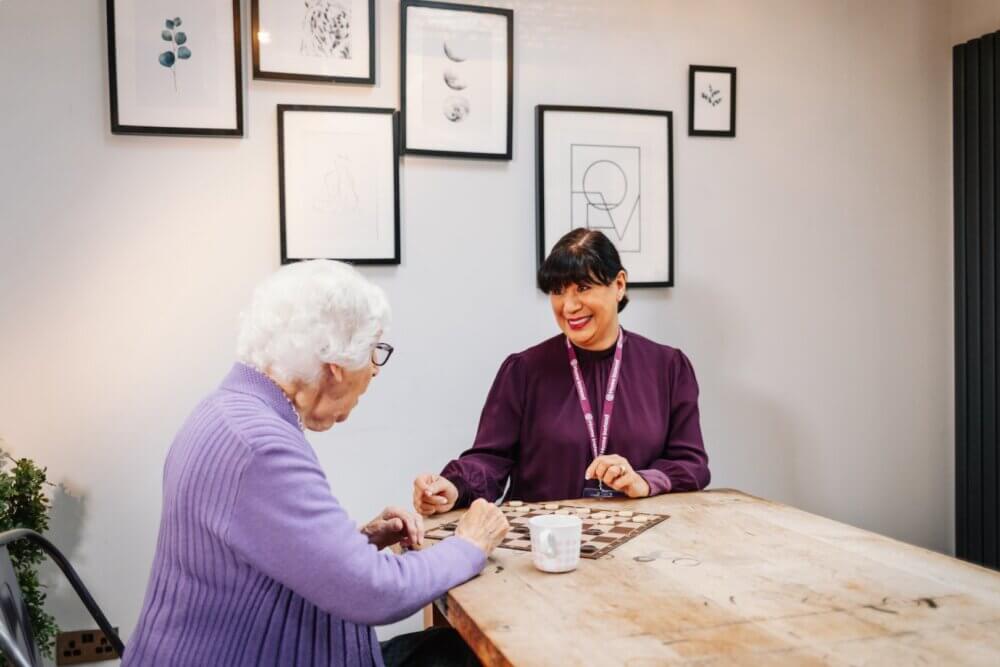
Minimise Reflections to Reduce Confusion
Mirrors and reflections can sometimes be distressing for individuals with dementia, who may not recognise their own reflection. Consider reducing the number of mirrors in the home or covering them if they cause distress. Similarly, reflections in windows at night can be confusing, so closing curtains or blinds after dark can help create a more calming environment.
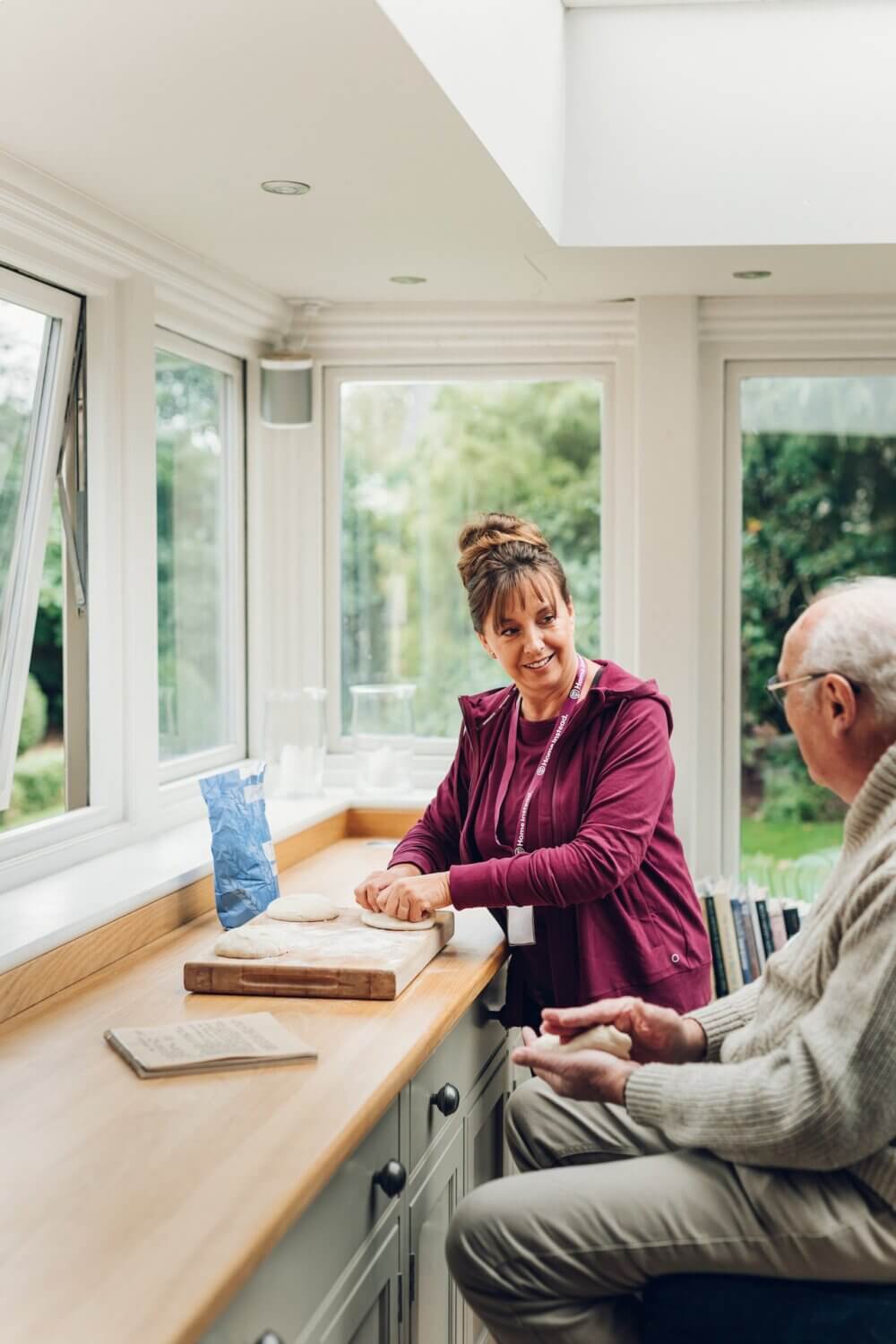
Introducing Assistive Technology
There are many technological aids designed specifically to assist people living with dementia. Simple changes, such as installing telephones with large, easy-to-press buttons or using clocks that display both the time and date, can make a big difference in day-to-day life. Devices that provide verbal reminders, such as prompts to lock doors or take medication, can offer added peace of mind.
If you are concerned about your loved one’s ability to live safely and comfortably at home, Home Instead Romford, Hornchurch, Rainham & Dagenham is here to help. Our Care Professionals specialise in dementia care and can offer personalised support, allowing your loved one to continue living at home with confidence.
Get in touch with us today to learn more about how we can support you in creating a dementia-friendly home environment.

Areas We Serve
Chadwell Heath, Dagenham, Gidea Park, Harold Hill, Harold Wood, Havering-atte-Bower, Hornchurch, Noak Hill, Rainham, Romford, Rush Green
RM1 1, RM1 2, RM1 3, RM1 4, RM10 7, RM10 8, RM10 9, RM11 1, RM11 2, RM11 3, RM12 4, RM12 5, RM12 6, RM13 7, RM13 8, RM13 9, RM2 5, RM2 6, RM3 0, RM3 7, RM3 8, RM7 0, RM7 7, RM7 9, RM6 6, RM8 1, RM8 2, RM8 3, RM9 4, RM9 5, RM9 6
10b, Elms House, Church Rd, Romford RM3 0JU
https://www.homeinstead.co.uk/romford-hornchurch-rainham-dagenham/